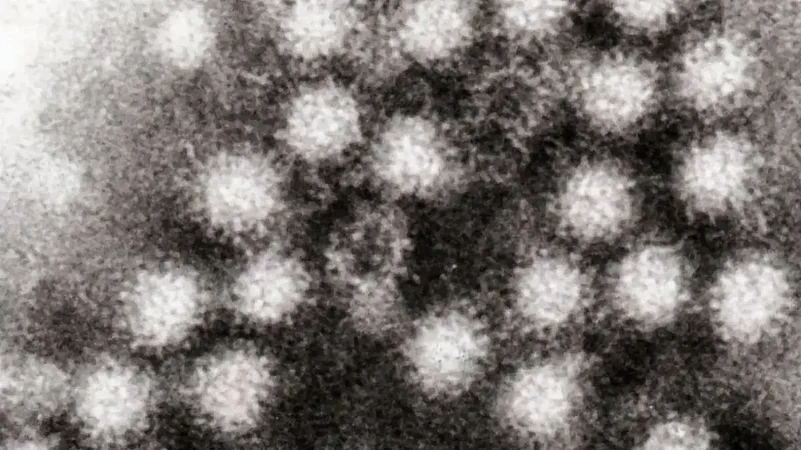Even as Covid-19 and monkeypox continue to pose a health risk to Indians, the detection of two cases of norovirus in the southern state of Kerala has caused concern among healthcare professionals. On Sunday, the Kerala government confirmed at least two cases of the highly contagious norovirus in the state.
"Norovirus infection has been detected in two children and their health condition is stable. There is no need to be concerned at the moment but everyone should remain careful and maintain cleanliness," state Health Minister Veena George informed the media. The infection was detected after samples of students who complained of food poisoning were tested at a government lab. Officials suspect the food poisoning occurred after the students had mid-day meals at school.
Advertisement
What is norovirus?
Norovirus, also known as the 'winter vomiting bug' is a highly contagious virus strain, similar to the diarrhoea-inducing rotavirus. It causes severe vomiting and diarrhoea-like symptoms. It can contaminate food and beverages and then infect people ingesting the infected items. Food or water contaminated with the virus may taste, smell and look the same, making it hard to detect.
What are the symptoms of norovirus?
Norovirus can cause gastroenteritis symptoms like vomiting and/or diarrhoea, headaches and body aches. In extreme cases, loss of fluids occurs and that could lead to dehydration as well. The symptoms may occur within 12-48 hours since exposure to the virus. Typical norovirus patients heal within two-three days.
Advertisement
How does norovirus spread?
Norovirus can be transmitted through contaminated food, water, and surfaces through cases of vomiting and/or diarrhoea. The virus also spreads through contaminated water and food. Touching contaminated surfaces and touching food or putting unwashed hands directly inside one's mouth can cause norovirus to spread. Direct contact with a norovirus-infected person can also cause the contagious virus to spread. While norovirus outbreaks can occur at any time, in the US, November to April is considered the prime time when norovirus cases spike.
How to avoid catching norovirus?
Using clean toilets and repeatedly washing hands with soap after using the lavatory is advised to prevent catching the virus. It is to be noted that alcohol-based hand sanitisers DO NOT work against norovirus as it is a non-enveloped virus, as per information provided by UK's National Health Survey. Washing water with soap and warm water is the most recommended way to wash off the virus.
Not eating food or drinking water from unhygienic places is also advisable. Washing fruits and vegetables before cooking is advisable since raw goods travel from unhygienic mandis and markets before reaching homes and have come in contact with the virus at some point. Wash seafood like shellfish, clams, oysters etc as they are likely for norovirus contamination.
How to stop the spread of norovirus?
Keeping toilets and lavatories clean is a must. Also ensuring food is cooked in a hygienic manner and both food and water are stored in sanitary spaces. As per the Centre for Disease Control in the United States, those infected with norovirus should isolate at home until recovery and for two days after. They should also avoid preparing food for others until two days after the end of the infection.
Norovirus can also spread through raw seafood like infected oysters. The Food And Drug Administration in the US recently asked restauranteurs and food retailers to be careful of shellfish and oysters coming from Canada after a joint study by the CDC and other health organisations found 103 cases of norovirus across multiple states in the US on April 22 that could have links to consuming or coming in contact with raw oysters coming from British Columbia.
Advertisement
Is Norovirus fatal?
Yes, norovirus infection can turn fatal without proper treatment. In 2017, the CDC noted that two lakh people died worldwide due to the virus that infected over 600 million people globally every year. Those who are immunocompromised are at a higher risk of being more severly affected.




















